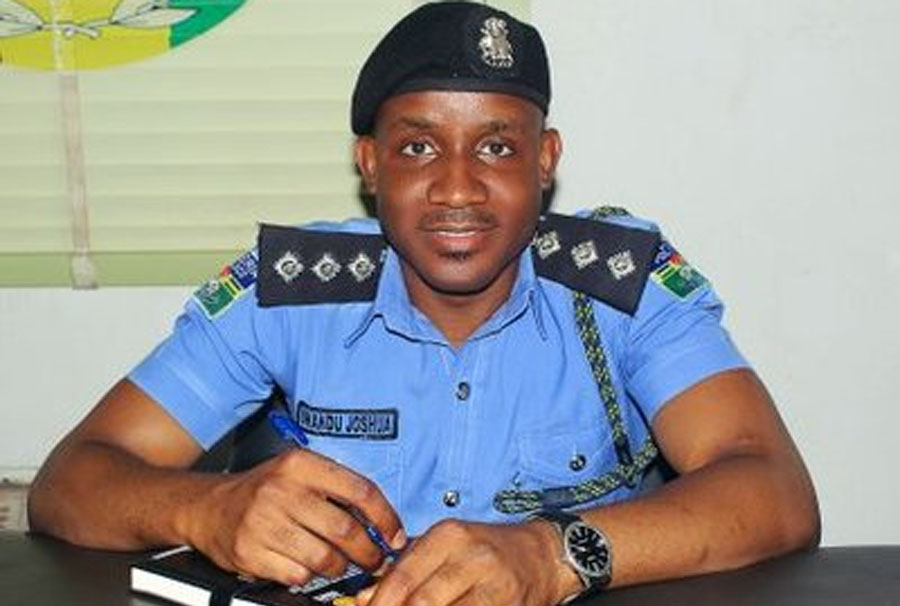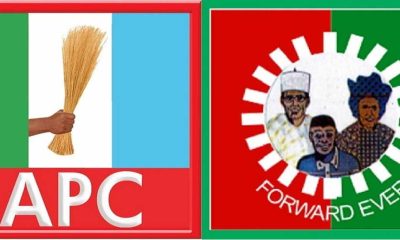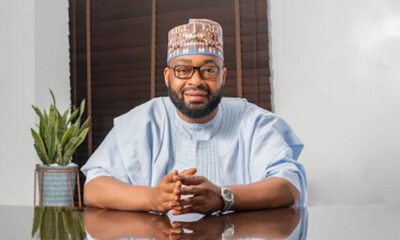metro
15-year-old boy jailed 43 years for robbing, killing school principal

15-year-old boy jailed 43 years for robbing, killing school principal
A 15-year-old boy has been sentenced to 43 years in prison by the Nongoma regional court after being convicted for robbing and k!lling Prince Bhekintinta High School principal, Alpheus Mphumuzeni Ntuli, 61.
The horrific incident occurred on April 22 last year, when Ntuli was reported missing, leading to a police investigation.
KwaZulu-Natal police spokesperson Col Robert Netshiunda revealed that the teenager was first spotted by police when they were traveling from Bhanganoma cottages, where Ntuli lived, to a nearby police station. The suspect was seen driving Ntuli’s vehicle on Mkhuze Road but sped off when authorities approached. He later abandoned the car and fled on foot.
READ ALSO:
- Barcelona’s wonder-kid Yamal beats 24 others to win Best Young Player Award
- PDP suspends lawmaker over alleged insubordination
- Liverpool triumph over Real Madrid in Champions League showdown
Ntuli’s lifeless body was found days later near a riverbank under a bridge in the Odwaleni area. His body bore multiple wounds and bruises, indicating a violent struggle. The teen was eventually tracked to his home in the KwaSnqandi area of Toyisa, where he was found in possession of a firearm and ammunition he had stolen from his grandfather.
After multiple court appearances, the teenager pleaded guilty to charges including murd3r, theft of a firearm, illegal possession of a firearm and ammunition, and robbery with aggravating circumstances. On November 21, the court handed down a sentence of 43 years, marking the end of a tragic chapter for the Ntuli family and the community.
15-year-old boy jailed 43 years for robbing, killing school principal
metro
Police recover bodies of father, son after mysterious death

Police recover bodies of father, son after mysterious death
Authorities in Ebonyi State have recovered the remains of a man and his son who were found dead under unclear circumstances in the Ebebe Junction area of Abakaliki.
State Police Command spokesperson, SP Joshua Ukandu, confirmed the evacuation to the News Agency of Nigeria (NAN) on Friday.
Ukandu said the deceased, identified as Mr. Light Nwodor and his son Miracle, were found lifeless, prompting swift action by officers in the area.
READ ALSO:
- Real Madrid demand referee change, could boycott Copa Del Rey final
- Many missing, one killed in Ebonyi community clash
- Zamfara okays 100% increase in NYSC members’ state allowances
“When I was called by an individual about the incident, I quickly called the Divisional Police Officer (DPO) in the area,” he said.”They swung into action and the dead bodies have been evacuated.“The police have launched investigation into the matter.”The command will definitely inform the general public on completion of investigation.“Right now, nobody knows what caused their deaths,” he added.
He also noted that no updates had been received from the DPO regarding any arrests linked to the case.
Initial unconfirmed reports circulating online suggested that the deaths may have resulted from eating food prepared by a woman who is allegedly now at large.
Police recover bodies of father, son after mysterious death
metro
Many missing, one killed in Ebonyi community clash

Many missing, one killed in Ebonyi community clash
One person has been shot dead, two injured and many people missing in Ndiagu Amagu, Ikwo in Ikwo Local Government Area of Ebonyi State following a leadership tussle. The deceased, Nwoyika Ugbaloke and Thomas Ngaragu were reportedly attacked by some gunmen, but Ugbaloke couldn’t survive the attack.
Many people are said to be missing in the attack.
It was gathered that trouble started when a faction in the community imposed N40, 000 level on all the adults in Nduche Umuomara in the community, which did not go down well with another faction in the area.
READ ALSO:
- Zamfara okays 100% increase in NYSC members’ state allowances
- Tinubu won’t get second term if El-Rufai can mobilise northerners for Obi – Dahiru
- Musician, Terry Apala, remanded for naira abuse in Lagos
It was also gathered that the faction that imposed the N40,000 levy on the adults was also selling lands belonging to the faction that opposed the levy.
A son of the deceased, Nwoyika Kingsley Emeka, lamented the killing of his father and called for arrest of his killers. He said the killers were moving freely in the community, sealing people’s farmlands with palm fronds and warning them never to set their feet on the farms until the fines were paid.
He alleged that the perpetrators were being protected by some highly placed persons in the community.
When contacted, the state Police Public Relations Officer, SP Joshua Ukandu said he had not received any report on the incident.
Many missing, one killed in Ebonyi community clash
metro
EFCC declares four persons wanted over CBEX scam

EFCC declares four persons wanted over CBEX scam
The Economic and Financial Crimes Commission (EFCC) has declared eight suspects wanted in connection with the alleged loss of approximately N1.3trillion to Crypto Bridge Exchange (CBEX).
Apart from two of the suspects based in Ibadan, the rest six were said to be from Idimu-Egbeda Road in Lagos.
But the EFCC has held on to two suspects it earlier arrested.
 According to a notice by the EFCC’s Head of Media and Publicity, Mr. Dele Oyewale, all the suspects are wanted for “fraud allegedly perpetrated on an online trading platform called Crypto Bridge Exchange (CBEX).”
According to a notice by the EFCC’s Head of Media and Publicity, Mr. Dele Oyewale, all the suspects are wanted for “fraud allegedly perpetrated on an online trading platform called Crypto Bridge Exchange (CBEX).”
The first set of suspects, who are Nigerians, include, Oloyede, Emmanuel Uko, Adefowora Oluwanishola and Adefowora Abiodun Olaonipekun.
The foreigners are Johnson Okiroh Otieno, Israel Mbaluka, Joseph Michiro Kabera and Serah Michiro.
The Adefoworas and Michiros are suspected to be couples.
The statement described the second set of suspects as “foreign accomplices wanted by the EFCC. “
The statement added: “The public is hereby notified that the persons whose photographs appear above are suspected foreign accomplices wanted by the Economic and Financial Crimes Commission (EFCC) for fraud allegedly perpetrated on an online trading platform called Crypto Bridge Exchange (CBEX).
READ ALSO:
- NELFUND gets 500,000 applications for student loans in 11 months
- Farooq Kperogi: In 2027, Tinubu won’t win; the opposition will lose
- Zulum meets with Cameroonian troops after deadly Boko Haram attack in Wulgo
“Anybody with useful information as to their whereabouts should please contact the Commission in its Ibadan, Uyo, Sokoto, Maiduguri, Benin, Makurdi, Kaduna, llorin, Enugu, Kano, Lagos, Gombe, Port Harcourt or Abuja offices or through 08093322644; its e-mail address: info@efcc.gov.ng or the nearest Police Station and other security agencies.”
Asked about those two earlier arrested, a source in EFCC said: “They are still in custody. “
The Director-General of the Security and Exchange Commission (SEC), Dr Emomotimi Agama has said CBEX is unregistered with it.
He said the commission cannot be of help to the victims.
He said: “There is nothing the commission can do”.
“We are worried that this went on for long without anyone drawing our attention to it. That is why we are doing more enlightenment and asking people to come forward to report this for early detection.”
SEC said preliminary investigations revealed that CBEX, which also operates under the corporate identity of ST Technologies International Ltd, Smart Treasure/Super Technology, had held itself out as a digital asset-trading platform, offering high returns to investors in Nigeria.
It said: “The Commission hereby clarifies that neither CBEX nor its affiliates were granted registration by the Commission at any time to operate as a Digital Assets Exchange, solicit investments from the public or perform any other function within the Nigerian capital market.”
EFCC declares four persons wanted over CBEX scam
-

 metro1 day ago
metro1 day agoOmokri : How Tinubu’s political mastery started with Abiola, says El-Rufai, Obi’s forces can’t stop him
-

 Education22 hours ago
Education22 hours agoJAMB officials seize candidates’ hijab at Caleb varsity, Muslim students kick
-

 Entertainment2 days ago
Entertainment2 days agoP-Square: Jude Okoye freed after two months detention
-

 International22 hours ago
International22 hours agoUS releases 41 countries granted 90-day entry without visas (full list)
-

 Politics2 days ago
Politics2 days agoLabour Party collapses into APC in Plateau
-

 metro1 day ago
metro1 day agoGroom cancels wedding, marries another lady same date, venue
-

 Entertainment3 days ago
Entertainment3 days agoTuface named technical adviser to Benue governor
-

 metro2 days ago
metro2 days agoNiger Gov Bago makes U-turn on dreadlocks ban after backlash













